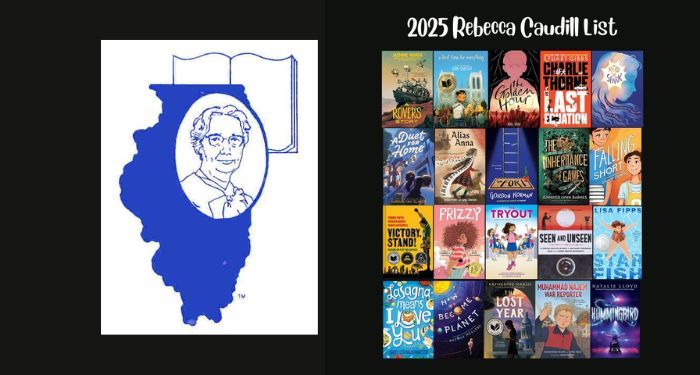
In mid-March, the Millburn School District 24, covering Wadsworth, Lindenhurst, and Old Mill Creek, Illinois, just northwest of Chicago, voted to end their participation in the youth-centered Rebecca Caudill Awards.
The Rebecca Caudill Awards are selected by fourth through eighth-grade students across the state annually. The books that earn the coveted honor are selected based on both their literary excellence and their appeal to the middle age reading demographic. The award helps to encourage reading for pleasure among tweens and young teens, to develop a statewide list of excellent literature for this age group, and to help develop cooperation and collaboration among schools and libraries statewide.
Some members of the board, led by John Ruggles, began questioning whether or not there was a political agenda to the awards. He and other board members felt the list of eligible books for the award was “left-leaning,” based on his discomfort with a book his son brought home that he himself paged through. The book, Stamped: (For Kids) Racism, Antiracism, and You, appeared on the 2024 Caudill list and was a title selected for the award by 5-8th grade students in Illinois.
But thanks to local parents and activists in suburban Chicago and beyond, at last night’s Millburn School Board meeting (April 22, 2024), the decision to kill the program was reversed.
The board meeting was packed, and the meeting began with over 50 minutes of public comment. Comments came from supporters of the program, as well as those passionate about the freedom to read.
Following the public comments, the board moved into their own discussion of action items. Among them was the future of the Reader’s Choice program (the Rebecca Caudill Awards).
Librarians and other staff members met with several stakeholders within the district in the last month following the board’s decision to end the program. One of the compromises proposed at the board meeting was that the program would be entirely opt-in, held through the library, and students who wanted to take part would need a signed parental permission form. This would turn the program from an opt-out experience to an opt-in experience.
Also mentioned was a heightened fear from educators in the district, who worried if they were to have a Caudill book in their classroom or choose to read one with the class, they would have blowback from parents and the board for doing so. Further, distrust was sown because of librarians recommending the Caudill books to educators and educators hearing messages from the board that these books had an agenda.
One board member spoke up about the impact the ending of the program had both for the image of the board internally, but also externally.*
“We as a board we are here to be a productive power system,” he said. “We are here to enable people to do things. We’re not here to take away the rights or to take away the access. We pool our resources as a community to build this school and that’s what we should be doing. We should be giving more access. We should not be restricting it.”
He further emphasized the educational requirements for librarians and how they are professionals who deserve to be trusted and respected. Likewise, he noted that parents likely do not know they already have the right to opt out of curriculum and school events — he thought it better to keep the Caudill program as is rather than turning into opt-in only.
Ruggles continued to share his unsubstantiated concerns, unfortunately, down to claiming that board members in the state of Illinois last year were threatened because of book awards like the Caudill at the high school level (there is not a single news story covering this or even hinting at such a thing). Ruggles pushed for opt-in, despite feedback from board members noting that it puts undue burden on already overworked parents — and Ruggles admitted he doesn’t recall if he’s ever opted his own child into a program.
After an additional 50 minutes of board discussion, a member of the board motioned to vote on reinstalling the Readers Choice program with parental opt-in or opt-out as administered through the library. As might be suspected, this language was vague and confusing, so after a minute of thinking through the actual motion, it was reissued and voted on as reinstalling the Readers Choice program with a required parental opt-in. The motion did not carry.
Board member Fred Skeppstrom motioned then to reinstate the program, but as it stood as of March 1, 2024 — with a parental opt-out rather than opt-in clause.
That motion carried, leading to wide applause from those in attendance.
Students in the Millburn School District will once again have access to the Rebecca Caudill Award, and parents will have the option that they always have had to state they do not want their student participating.
The full video of the meeting can be accessed here.
*It is impossible to know the name of the board member because of how their Zoom recording is set up — the image does not show him as he speaks, and the board’s website does not offer photos of the board members to cross-check.
